 The selection views apply a WHERE clause to the table, with an automatic filter on the records.
The selection views apply a WHERE clause to the table, with an automatic filter on the records.
Cross Model Category: Standalone development
Standalone development
Manual views
 In the manual views, the SELECT statement is created by the developer, and can be in any form.
In the manual views, the SELECT statement is created by the developer, and can be in any form.
The statement is anyway included in a schema, that once created can have the same properties of a table schema, including connections, and can be used in any part of the program in the same way.
This kind of view can be used in many cases, for example to show a record twice.
Complex views
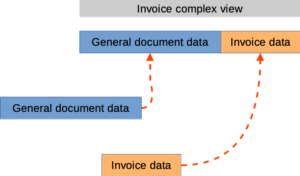 The complex views are one of the most powerful features of CrossModel.
The complex views are one of the most powerful features of CrossModel.
These views include two or more different table or views, and still they can be inserted or updated like a single table, thanks to the insert-update stored procedures.
Automatic database realignment
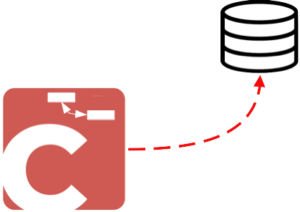 The data structures created in CrossModel are saved in the program (schema classes) and can automatically realign the database in the server.
The data structures created in CrossModel are saved in the program (schema classes) and can automatically realign the database in the server.
Integrated modeling tool
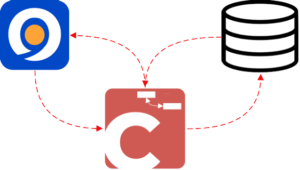 The external data modeling tools that can be used to create a data structure in Omnis Studio can be extremely powerful, but they are usually a separated environment, whose only contact with the application is the database.
The external data modeling tools that can be used to create a data structure in Omnis Studio can be extremely powerful, but they are usually a separated environment, whose only contact with the application is the database.
CrossModel is fully integrated into Omnis Studio, and this gives many important advantages over the separated modeling tools.
Connections, foreign keys and referential integrity
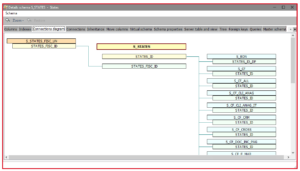 One of the most important features to meet tha ACID requirements of modern database is the possibility to create connections between tables with foreign keys, to ensure data integrity.
One of the most important features to meet tha ACID requirements of modern database is the possibility to create connections between tables with foreign keys, to ensure data integrity.
CrossModel can create and mantain connections between schemas (tables of the database), allowing full use of referential integrity of the databases.
Advanced schema (database table) properties
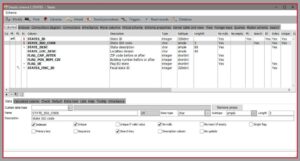 The Omnis Studio schema clesses define the structure of the database tables.
The Omnis Studio schema clesses define the structure of the database tables.
In addition to the Omnis Studio properties for the schema columns:
- Name
- Description
- Primary key
- Type
- Subtypes
- Null or no null
Crossmodel includes an ample set of properties that can create and maintainthe database in a more advanced way.
CrossModel views
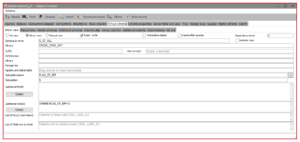 CrossModel can create and maintain database views, that can be used for different purposes:
CrossModel can create and maintain database views, that can be used for different purposes:
The views can be read write, even if thay include multiple tables (complex views)
Mirror views
 Mirror views create aliases of a table-view with an optional extension applied to all the columns.
Mirror views create aliases of a table-view with an optional extension applied to all the columns.
The aliases can be used in different situations. One of the most common is whan a record needs to be connected to more that one record of the same table.